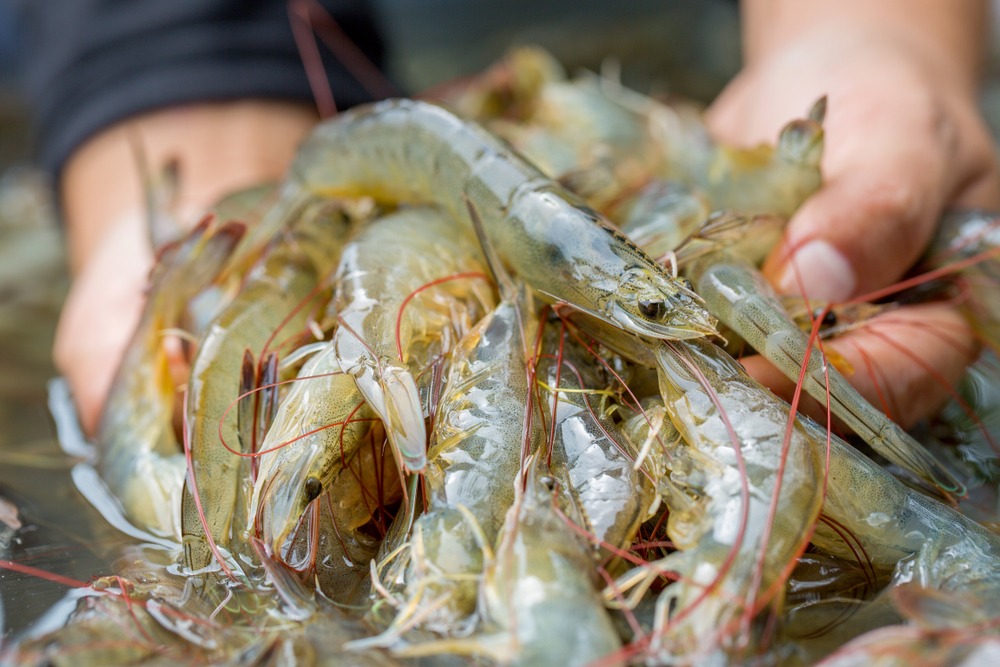Israeli aquaculture startup ViAqua has closed a new round of funding with Singapore-based VisVires New Protein, which is a global fund focusing exclusively on disruptive food and feed system solutions. The startup’s existing investors include Nutreco, a world’s leader in animal nutrition and aqua feed, and Israel’s Technion Institute of Technology. ViAqua is also a portfolio company of Trendlines, an incubator of innovations-based medical and agricultural technologies.
Founded in 2014, ViAqua’s first product is designed to prevent and treat viral epidemics in shrimp, including the prevalent and devastating White Spot Syndrome Virus. The mortality rates associated with this virus can reach 100% within five days of onset, leading to devastating financial losses for shrimp producers. The disease has been plaguing shrimp populations for over two decades, but there have been little to no effective solutions for combatting its effects. The estimated cost associated with viral pathogens like WSSV result in an estimated $3 billion of loss in global shrimp production annually.
“ViAqua’s transformational solution for viral infections in shrimp will dramatically elevate the efficiency and quality of the entire shrimp aquaculture industry,” says Matthieu Vermersch, founder and partner of VisVires New Protein, in a press release announcing the funding. “This is especially relevant in Asia where much of shrimp farming are already producing near capacity. It is an industry that is traditionally plagued by poor disease management and high mortality rates. Our commitment to ViAqua is typical of our investment approach; backing companies who address a real, unmet need and solve a problem that truly matters for the industry.”
Using an encapsulated non-GMO RNA molecule, ViAqua’s technology has the ability to inhibit specific viral gene expressions, which disables viral infections in shrimp. Administering the product is easy for shrimp producers because it is added to conventional feed as a particulate.
Over the next few months, ViAqua will continue to perform research, development and the optimization of the final product before bringing the product to market. VisVires has been a long-term supporter of the startup’s mission, according to ViAqua, providing insight and advice as the company developed from 2016 onward.
“VisVires New Protein’s network of industrial and commercial contacts, especially in Asia, will enable us to establish important partnerships in the region that will be key to the worldwide adoption of our solution,” company CEO and co-founder Shai Ufaz said in a press release announcing the funding.
Tackling WSSV is not the end of the line for ViAqua. The startup’s technology allows them to expand the product pipeline to encompass additional aquaculture-related species and diseases down the road.
VisVires also completed an undisclosed investment in Dutch startup InOvo in November 2018. In Ovo’s first solution addresses the issue of male chick culling in the commercial egg industry through an automated process that can determine the gender of fertilized eggs before hatching. VisVires backed the company due to its potential relevance in Asia, which is the largest egg producing country in the world with over 1.8 billion laying hens.
The fund is also invested in Ynsect, a French robotics-enabled insect farming startup aiming to replace fishmeal.
Overall, it’s been an active year for aquaculture investments. In October 2018, CageEye, which developed echo-sounder technology that uses software and hardware to track acoustic data in a fish cage, raised an undisclosed round of funding from Dutch seafood-focused venture capital fund Aqua-Spark. In September 2018, Umitron, an Asian startup using satellite imagery, IoT, and automation to increase the efficiency of offshore aquaculture, raised the funding from the Japanese government and a Japanese venture capital firm. And in March 2018, Cargill launched its second digital platform for aquaculture, which analyzes data about shrimp size, water quality, feeding patterns, and health and weather conditions to help farmers make decisions and optimize their practices
A new aquaculture-focused accelerator called The Hatch also launched this year, which will debut its first cohort in Spring.





